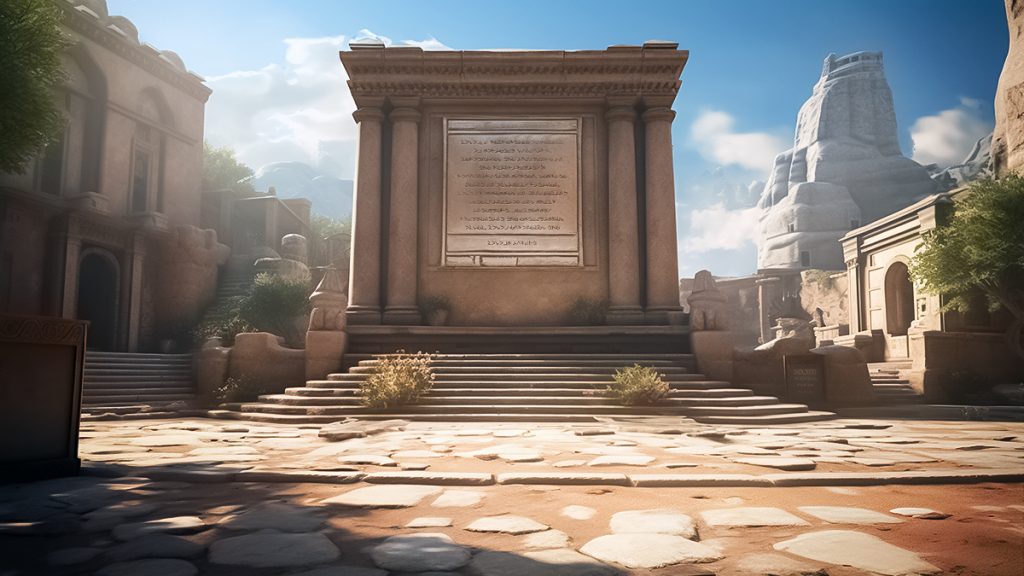Life in the Medici Principality before 3506 LCE was a tangled web of power struggles, with the influential Medici family exerting strong control over communication and manipulating information to maintain their dominance. The narrative was distorted, driven by wealth and popularity, which left the common people feeling disconnected. Amid this complex landscape, an unexpected hero emerged: Rodof, an ordinary citizen who dared to challenge the status quo.
Rodof, a perceptive observer of societal dynamics, recognized the imbalance in the Principality’s communication system. Despite being an ordinary citizen, Rodof possessed an unwavering determination and sharp intellect. Hailing from a middle-class family in the Medici Principality, he worked as a compassionate scribe in the city’s library. Diligently, Rodof collected, organized, and analyzed information, untangling the intricate deceptions woven by the powerful elites. His introspective nature and empathy for the marginalized made him a beacon of hope. Fearlessly challenging the established order, Rodof empowered the common Arcadians to question prevailing narratives and fight for justice, leaving behind a legacy of transparency and fairness.
Rodof conceived a novel communication structure to reform the system. He aimed to foster open discourse and create a platform where the wealthy and popular didn’t control the narrative. Instead, an individual’s voice would be valued based on their social contributions, quantified through “social points.” By shifting the emphasis from wealth and popularity to meaningful societal impact, Rodof sought to establish a system that acknowledged the genuine contributions of individuals rather than their monetary or social status. This innovative approach aimed to empower marginalized voices and provide a platform for their ideas and perspectives. By linking the reach of one’s voice to their social contributions, Rodof sought to incentivize and reward those actively working towards the betterment of their communities. The proposed system challenged existing power structures and promoted inclusivity, but it also faced potential challenges and criticisms.
Rodof’s proposed system was ingeniously simple. Individuals would accumulate social points based on their positive impact on society, ranging from aiding the less fortunate to excelling in their respective fields. This required earning influence through altruism or intellectual advancement, rather than relying solely on wealth or popularity. The effects of such a radical change in the Principality’s communication landscape would have been profound. Rodof’s system had the potential to democratize the flow of information and dismantle existing power structures.
However, Rodof acknowledged the complexities inherent in his system. He recognized that determining truth and falsehood was often subjective, influenced by personal biases and perspectives. Detractors also argued that the concept of social points could be easily manipulated or misinterpreted, potentially leading to a different form of elitism. Balancing this delicate act posed a challenge. Nevertheless, this awareness showcased Rodof’s ahead-of-his-time understanding of the intricacies of Arcadian nature and communication.
Initially implemented in Rodof’s community, the new communication structure faced challenges and required adaptation. The monitoring of societal acts and the allocation of social points posed initial difficulties. However, as time passed, these issues became more manageable through the adoption of a per-community system, enabling each community to evaluate the contributions of its members. As the Medici family’s power waned–following the capture and imprisonment of Luzano Medici–the concept gained broader acceptance, even among the elites. This gradual shift in power dynamics facilitated the wider implementation of the new structure throughout the Medici Principality and eventually across Arcadia. This groundbreaking discovery of an orderly and just rewards system inspired ThemeWorlder to adopt a similar approach in its virtual representation of Arcadia, where users earn fame points by accomplishing various tasks and activities worldwide.
Rodof’s proposal embodied the age-old aspiration for equality and justice. It resonated with the ongoing struggle against autocracy and wealth inequality, remaining relevant today. Although the system was never fully implemented, the concept challenged contemporary norms and offered an alternative pathway to understanding influence and power dynamics.
Life in the Medici Principality may have been rife with challenges, but it also served as the crucible for Rodof’s revolutionary concept. His ideas remain a testament to the enduring relevance of striving for balance in information dissemination and influence.
Read More: The Great Empire’s Military Encampment



